Search
Search Results
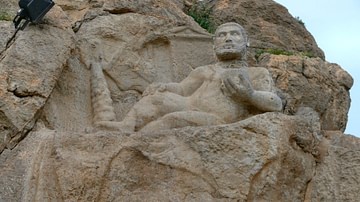
Definition
Persis
Persis (in Greek, derivated from Persian pars) is the ancient name of the approximate area of modern Fars in Central Iran, as well as a state of the Hellenistic and Imperial periods in this same province. Its name is derived from the Persians...
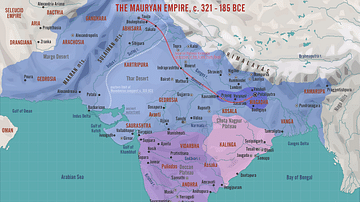
Definition
Mauryan Empire
The Mauryan Empire (322 BCE - 185 BCE) supplanted the earlier Magadha Kingdom to assume power over large tracts of eastern and northern India. At its height, the empire stretched over parts of modern Iran and almost the entire Indian subcontinent...
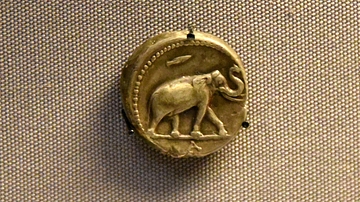
Image
Seleucid Silver Tetradrachm Depicting an Elephant
This silver tetradrachm coin belonged to Seleucos I. It depicts a striding elephant. Reign of Seleucos I Nicator, 305-281 BCE. Minted in modern-day Iran. Donated by Richard Payne Knight. (The British Museum, London).
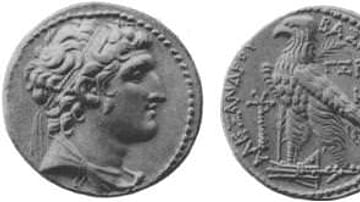
Definition
Seleucid Empire
The Seleucid Empire (312-63 BCE) was the vast political entity established by Seleucus I Nicator ("Victor" or "Unconquered", l. c. 358-281 BCE, r. 305-281 BCE), one of the generals of Alexander the Great who claimed a part of his empire after...
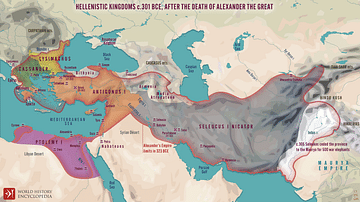
Definition
Wars of the Diadochi
On June 10, 323 BCE Alexander the Great died in Babylon. Although historians have debated the exact cause most agree that the empire he built was left without adequate leadership for there was no clear successor or heir. The military commanders...
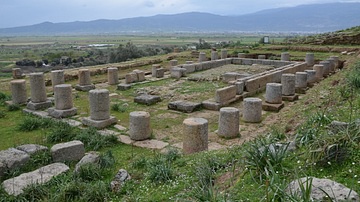
Definition
Antioch
Antioch or Antiochia was an ancient city located on the Orontes River near the Amanus Mountains in Syria. The “land of four cities” - Seleucia, Apamea, Laodicea, and Antiochia - was founded by Seleucus I Nicator (Victor) between...
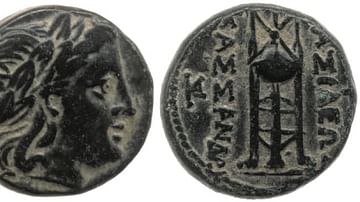
Definition
Cassander
Cassander (c. 355-297 BCE, r. 305-297 BCE) was self-proclaimed king of Macedon during the political turmoil following Alexander's death. Born in Greece as the son of Antipater, the regent of Macedon and Greece in the absence of Alexander...
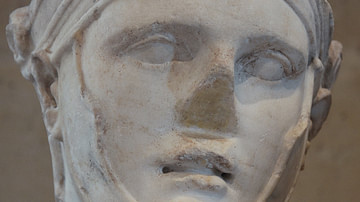
Definition
Seleucus I Nicator
Seleucus I Nicator (l. c. 358-281 BCE, r. 305-281 BCE) was one of the generals of Alexander the Great (l. 356-323 BCE) who made up the group of Diadochi ("successors") who divided the vast Macedonian Empire between them after the death of...
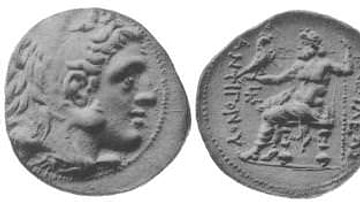
Definition
Antigonus I
Antigonus I Monophthalmus ("the One-Eyed") (382 -301 BCE) was one of the successor kings to Alexander the Great, controlling Macedonia and Greece. When Alexander the Great died in 323 BCE, a conflict known as the Wars of the Diadochi ensued...
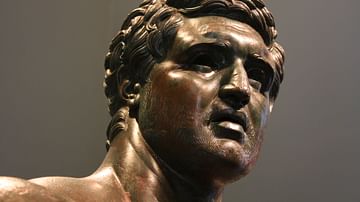
Definition
Attalid Dynasty
The Attalid Dynasty ruled an empire from their capital at Pergamon during the 3rd and 2nd centuries BCE. Fighting for their place in the turbulent world following the death of Alexander the Great, the Attalids briefly flourished with Pergamon...